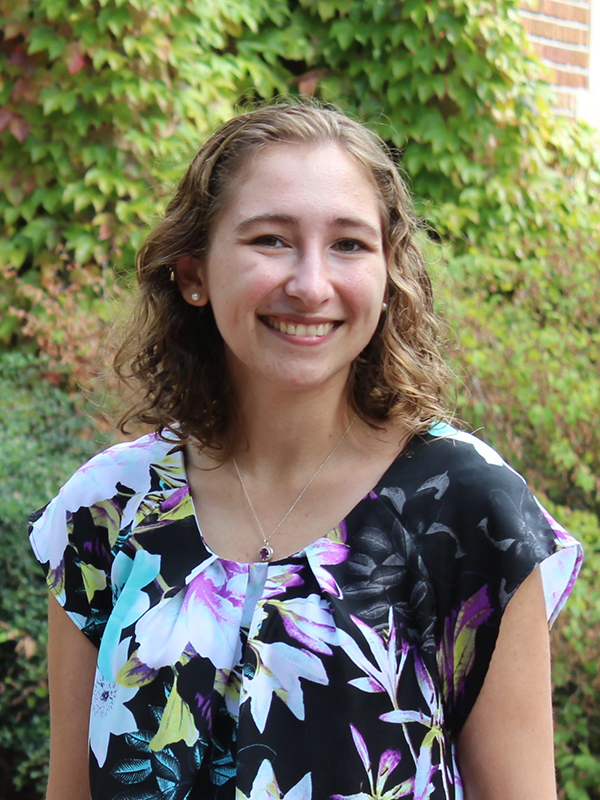Allen School Ph.D. student Kelly Mack is a problem solver who aims to ensure that other researchers take accessibility and disability into account — both in their research methods and during their design process. She has carried this accessibility mindset into her work with industry, where she helped establish the first disability-focused employee resource group as an intern at Snap Inc., and into her leadership of a chapter of Girls Who Code, where for the past five years she has facilitated workshops and taught girls between the ages of 10-18 how to code.
“I want to inspire and provide mentorship for the next generation of computer scientists,” said Mack, who works with professor Jennifer Mankoff in the Allen School’s Make4All group. “Even in the early stages of learning about coding, we can create awareness around accessibility and inclusive design.”
In recognition of her leadership and dedication to advancing the greater good, Mack recently received the 2022 Dorothy L. Simpson Leadership Award from the Seattle chapter of Achievement Rewards for College Scientists Foundation (ARCS). ARCS established the award in 2018 in honor of the late Dorothy L. Simpson, who, throughout her life, pursued intellectual curiosity and lifelong learning. As the President of the ARCS National Board and member of the Seattle ARCS chapter, Simpson was dedicated to supporting talented scholars through her philanthropic giving. Mack previously was named an ARCS Scholar (2019-2022), an award which is presented to top graduate students in the sciences who demonstrate exceptional qualities related to teamwork, innovation and creativity.
“Kelly is a wonderful student, disability advocate and researcher,” said Mankoff, who is also founding co-director of the UW Center for Research and Education on Accessible Technology (CREATE). “She is dedicated to raising up people with disabilities.”
Although only in the third year of her doctoral studies, Mack has authored many papers presented at venues such as the ACM SIGACCESS Conference on Computer Science and Accessibility (ASSETS) and ACM Conference on Human Factors in Computing Systems (CHI). Five of her recent papers have been nominated for Best Paper Awards. Some of Mack’s notable work focuses on understanding accessibility and assistive technologies as a topic of research, qualitative research into the experiences and needs of people with disabilities using ethnographic and auto-ethnographic methods, and designing tools for high-quality alternative (alt) text authoring.
In order to situate her own work as well as offer other researchers a starting point to explore questions related to accessibility, Mack led a meta-analysis of 836 papers produced over a 10-year period that focused on accessibility and assistive technology. The researchers wanted to learn who previous accessibility research had focused on, how other researchers articulated their goals (e.g., increase digital accessibility or increase independence for people), what methods were employed in the study design and how accessibility research has evolved since its conception.
When COVID-19 turned her Microsoft Research internship virtual, Mack used it as an opportunity to examine how the pandemic style workspace created varied accessibility challenges for team members depending on their abilities, positions and seniority. This work broke new ground within Mack’s previous qualitative research endeavors wherein the researchers engaged in self-reflective methodology through the auto-ethnographic process. Ultimately, Mack and her team recommended guidelines such as community norm making, access labor and disability awareness, and a shift in attitudes toward accessibility within future mixed-ability virtual workspaces.
Mack’s work on alt text authoring tackles the important topic of how to best assist authors to compose descriptions of digital images for the benefit of individuals who are blind or low-vision. In collaboration with Microsoft Research, this work was the first of its kind to tackle important questions related to alt text authorship as well as screen reader user preferences about human authored and human edited alt text. Significantly, this research uncovered the notion that screen reader users and alt text authors had widely different interpretations of what constitutes high-quality alt text. Likewise, Mack and her co-authors found that alt text authors produced superior alt text when they initiated the description based on the original digital image as opposed to when they edited AI generated alt text.
For Mack’s dissertation work, she will focus on building technology that supports people with disabilities who have fluctuating access needs and disability identities.
“I want to demonstrate that ‘access’ isn’t static,” explained Mack. “What makes something accessible, or not, changes based on the person and context, and our technologies need to recognize that.”
Congratulations, Kelly!


